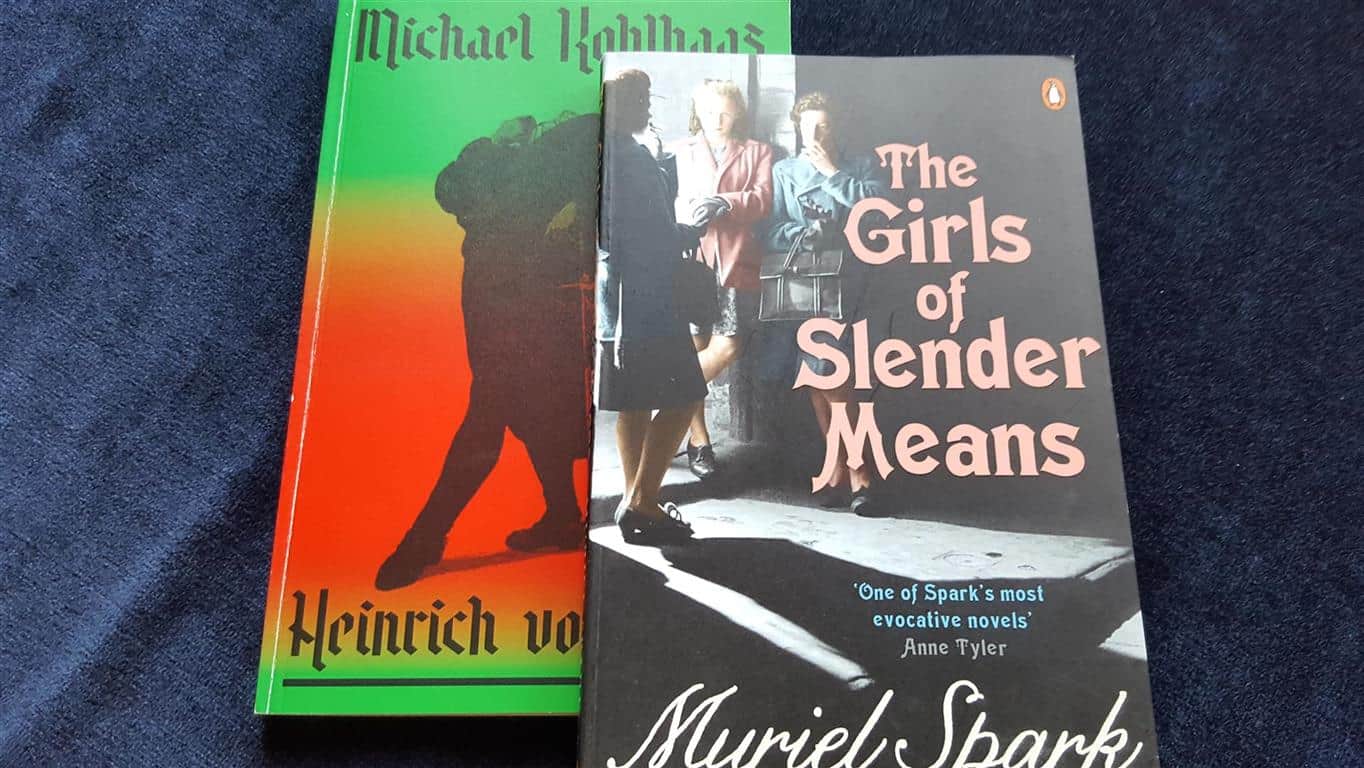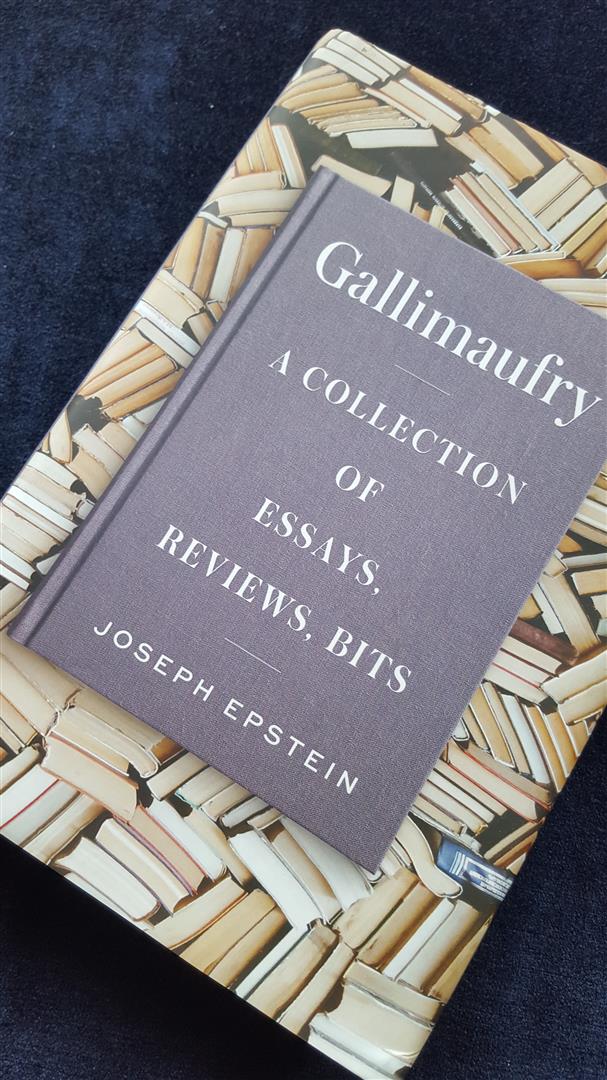
Every year, I make a list of books I’d like to see under the Christmas tree. Every year, I am delighted to tear off the wrapping and find just what I asked for. Like Christmas, the delight never fades, and I’m happy anticipating the pleasure this stack of books will bring. The cold, dark, long month of January is welcomed as the perfect time to read in the warmth & comfort of our old house. And that’s what I do. Lo and behold, when I look up from my book, it’s February already and the light is returning to our northern world—another annual event that never fails to delight me.
Friends and Enemies, A Memoir
Barbara Amiel talks about her life, and doesn’t stint in her telling of the good, the bad and the ugly in a tumultuous life. But the most interesting part for me was how she endured the persecution of her husband by the US justice system.
My introduction to Conrad Black’s grotesque ordeal with the US justice system, Canada’s pusillanimity and the UK’s kneejerk contempt for colonials’ accomplishments was in the newspapers & magazines at the time. Then I read A Matter of Principle, which Conrad Black wrote in prison, recording the ordeal in detail.
Friends and Enemies describes this ordeal from his wife’s point of view, underscoring my admiration for both of them in their long years of persecution for crimes not committed and a profitable corporation destroyed—in Barbara’s notorious words, that admiration has “an extravagance that knows no bounds”. In fact, their strength in never giving up even when bleak news piled on bleak news inspires me to keep fighting our current ordeal of the radical left’s attack on Western civilization.

The Songs of the Kings
Another disappointment in current fiction, by Barry Unsworth, the author of Sacred Hunger, a novel I had read and liked when it was published in 1992. (It shared the Booker Prize with The English Patient by Michael Ondaatje, both of them good novels; oh, how the mighty literary prizes have fallen, leading this reader to avoid winners because of the politically-correct junk they clog their stories’ arteries with.) The gimmick of using the current vernacular to tell the ancient story of Agamemnon sacrificing his daughter Iphigeneia for favourable winds for the Grecian fleet to lay siege to Troy is offputting. Especially the current use of ‘fuck’ for every second word in the dialogue. I am so tired of reading—and hearing—that word, and its ubiquitous use has stripped it of its power to shock. Enough already!
He does nail one word and its utter bureaucratese:
In fact, this first report can be summed up in that one word: progress. Interested in words as he was, he had always liked this one. It had magical properties if properly applied. Any movement, in any sort of direction, could be called progress. It was a notion that blunted present discontents, directing the thoughts to a future of greater prosperity, higher consumption and a more equitable distribution of wealth for oneself.
Bingo! There you have the ‘progressive’ hordes in a nutshell, scrambling to get more for themselves while clothing themselves in the pious vestments of concern for others. The emperor has no clothes indeed!

The Girls of Slender Means
Muriel Spark has been lauded as a sparkling writer, one who illuminates and cuts at the same time. She has been criticized as a less than sparkling person—self-centred, obsessive—one who concentrated on herself and her writing to the exclusion of all else, including her only son. But it’s the writing I’m interested in, and the tale of single women of limited means working in London after World War II is enchanting.
Long ago in 1945 all the nice people in England were poor, allowing for exceptions.
That brilliant sentence begins the story with this “general axiom” and continues with the intriguing lives of the women living at the May of Teck Club. They are neither glorified nor pitied, just treated as individual human beings, each with her unique makeup. And they knew their moment had arrived.
As they realized themselves in varying degrees, few people alive at that time were more delightful, more ingenious, more movingly lovely, and, as it might happen, more savage, than the girls of slender means.
This is grey London, full of “bomb-sites piled high with rubble”, ration coupons for scarce supplies, surviving buildings in shaky repair, and it was delightful to be young, female and working while living amongst others in the same blessed state. The focus is on living, getting on with it, and spending as little energy as possible complaining about the many obstacles in their way. Ah, what an interesting concept, eh?

Michael Kohlhaas

Law underpins a state of free citizens, and I have read few better descriptions of this than Kohlhaas’ defence of his rebellion against that state. “Outcast, replied Kohlhaas, clenching his fist, is my word for a man who receives no protection from the law. I need such protection for the peaceful exercise of my profession; yes, that is the sole reason why, together with the fruits of my work, I took refuge in a community. And whosoever would deny me such classes me with the savages of the wild; he gives me, and how can you argue with this, the cudgel with which I protect myself into my hand.”
Heinrich von Kleist (1777-1811) creates this fascinating tapestry of the knight errant fighting the maze of government in the early 1800s, a century before its direct descendant, Franz Kafka’s stories of bureaucratic hell. And unlike Kafka’s, this tale ends on a triumphant note, which is always an ending devotedly to be wished. “And so endeth the story of Kohlhaas. His body was laid in a coffin to near-universal mourning… (His) vigorous and bonny heirs, though, continued to thrive in Mecklenburg as recently as the last century.”
Gallimaufry: A Collection of Essays, Reviews, Bits
I like Joseph Epstein’s writing. It captures the zeitgeist and makes the reader laugh, cry, shout, whisper in recognition of the way we are. This ‘confused jumble or medley of things’ is twin to my list of subjects for blogs: “The Bookish Life”; The American Language”; “Frittering Prizes”; “The Menace of Political Correctness”; “Dirty Words”; and authors he has loved or hated.
A laugh right out of the shoot: “The village idiot of the shtetl of Frampol was offered the job of waiting at the village gates to greet the arrival of the Messiah. ‘The pay isn’t great,’ he was told, ‘but the work is steady.’” And we’re off on a tour of “The Bookish Life”.
And a personal recognition shortly thereafter: “But as one grows older and recognizes that one’s time isn’t infinite, one is more likely to choose to read the three volumes of Mommsen’s History of Rome over the five volumes of Robert Caro’s The Years of Lyndon Johnson, the poetry of Wallace Stevens over that of John Ashbery, the novels of Marcel Proust over those of Jonathan Franzen”, followed by the coda from Schopenhauer: “A precondition for reading good books is not reading bad ones: for life is short.” Amen to that!

In “The American Language”, Epstein discusses H.L. Mencken, a writer who loved “to write vividly about the grand circus that for him was American life”. While famous for his humour, Mencken was seriously sceptical about claims of understanding the ‘why’ of the universe.
No one knows Who created the visible universe, and it is infinitely improbable that anything properly describable as evidence on the point will ever be discovered. No one knows what motives or intentions, if any, lie behind what we call natural laws. No knows why man has his present form. No one knows why sin and suffering were sent into this world—that is, why the fashioning of man was so badly botched.
The worshipping of science today as the answer to all questions would meet with Mencken’s scorn. Scientists worthy of the name would join him in that scorn because they know their purview is to discover the ‘how’ of things, and leave the ‘why’ to theologians and philosophers.
And being a lover of the language, I always enjoy when the puffed-up claims of the English to superior command of the English language are deflated. Mencken wrote that the English of Americans
…is much more honestly English in any sense that Shakespeare would have understood… American is better on all counts—clearer, more rational, and above all more charming.
Just as I claim that Canadians speak English with the clearest accent: We can be understood by anyone in the world who understands English, even if only rudimentarily. Whereas many Brits swallow great gobs of words, demanding the listener fill in the syllables; Australians & South Africans’ cadence is jarring and their voice harsh; and Americans can have such a drawl, demanding the listener stay awake to hear the end of the sentence. Canadians, especially in the west, speak English clearly and at a pace attuned to the human ear. (How’s that for chauvinism!)
My suspicion of literary prizes, earned through many years of being disappointed and, worse, bored by prize winners, is nicely captured by Epstein in “Frittering Prizes”. He quotes William Gass, the novelist and critic, arguing that the Pulitzer Prize for fiction “takes dead aim at mediocrity and almost never misses”. My sentiments exactly! Another deterioration of the culture is discussed in “The Menace of Political Correctness”, a deterioration that has drastically grown since its ugly birth in the 1990s.
Something not merely humorless but mentally dull there is about the mindset of political correctness.
And Epstein’s damning indictment of academia rings true in the year of our Lord 2021.
The university in its homogeneity of outlook has become the utopia dreamt of by political correctness made flesh.
If that’s not enough to frighten the horses, I don’t know what is.
Epstein’s diatribe on “Dirty Words”, a sister subject to political correctness, echoes my condemnation of their ubiquity (see The Songs of the Kings above). I agree with him that “…lively profanity can be a delight to both its users and its audience”, but today it’s ‘fuck’, ‘fuck’, ‘fuck’, endlessly, mindlessly, boringly. Listen to the social-justice warriors and that’s there cry, endlessly, mindlessly, boringly. Sadly, the great f-word—a powerful word used sparingly to husband its power—has become the signature word of the woke as they destroy civilization.

Days Without End
Youth and age memorably evoked. I think of my grandchildren:
Young, and there would never be a change for that. The heart rising, and the soul singing. Fully alive in life and content as the house-martins under the eaves of the house.
And I think of me:
Things just go on. Lot of life is just like that. I look back over fifty (+70 for me) years of life and I wonder where the years went. I guess they went like that, without me noticing much. A man’s memory might have only a hundred clear days in it and he has lived thousands. Can’t do much about that. We have our store of days and we spend them like forgetful drunkards. I ain’t got no argument with it, just saying it is so.
(An interesting note: I bought the novel through AbeBooks, which sourced my hardcover from the Kouts Public Library in Kouts, Indiana – DISCARDED. The book is new, published in 2016, and its protagonists are two gay soldiers who are friendly with blacks, free and recently emancipated. Two major boxes in today’s woke culture are checked, so why the lack of readership? Perhaps it’s the authentic use of language that’s simply cannot be tolerated by the tribe ascendant… This, too, shall pass, I fervently hope.)

Still to come is the major book on my Christmas 2020 list, but it will wait for another blog, a blog solely on Black Lamb and Grey Falcon by Rebecca West.
